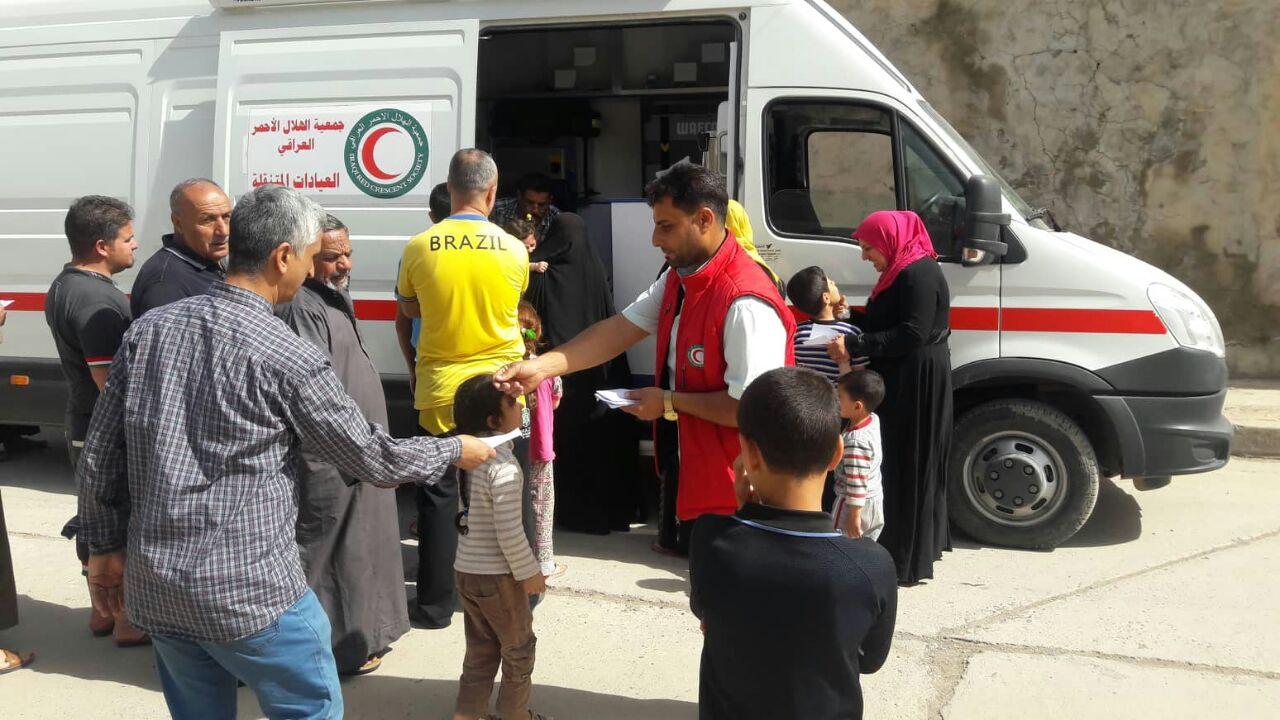Proceeding from its humanitarian principles and supporting the role of health institutions in providing health care services, the Iraqi Red Crescent Society (IRCS) has operated the mobile medical clinics and runs them on a daily basis to different regions of the country, and 7 mobile medical units provide their services to the local community in areas that suffer from weak health services, and the medical services included the needy families in the governorates of (Baghdad, Basra, Dhi Qar, Maysan, Karbala, Muthanna, Diyala, Nineveh) being the most in need of health service support.
According to Reliefweb.int, more than 73,000 people were examined and treated, while the number of beneficiaries of medical services reached more than 91,000 people in 2021.
The clinics supported by the IRCS, the International Committee of the Red Cross, the Danish Red Cross, and the International Federation of Red Cross and Red Crescent Societies were equipped with teams of doctors, pharmacists and nurses, medicines, and complete medical supplies, also a team of paramedics and volunteers to facilitate their work.
The medical staff diagnoses sick cases dispense treatments for diagnosed cases, treats minor wounds, and performs some possible minor operations, the most important cases that were treated were: (gastrointestinal diseases, skin diseases, respiratory diseases, joint diseases, diabetes, and anemia).
Some sick cases that needed specialized treatments or surgeries were referred to the Red Crescent hospitals, and the number of beneficiaries of the medical relief Committee’s services for treatment reached 143 at the expense of the IRCS.
The clinics’ work is accompanied by lectures to raise community health awareness by educating the community about infectious and chronic diseases and how to properly deal with them and take care of personal hygiene.
The work of mobile medical clinics is to fill the shortage of health services in a number of governorates, adding to enhance and improve primary health care services for the most vulnerable groups, taking care of the living situation, health level, nature of roads, and the difficulty of movement between the region and the surrounding areas where health care services are available through hospitals and health centers, as well as the poor level of public services available such as electricity, drinking water, and others, as 404 areas were visited in eight governorates.
It is worth mentioning that medical services are provided through fixed clinics in the Al-Jadaa camp, and the number of beneficiaries of medical and treatment services has reached 18,000 people.

